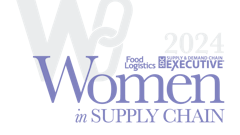Geneva, Switzerland—May 23, 2012—East Asian economies recorded marked improvements in their ability to enable trade while traditional frontrunners Singapore and Hong Kong retain a clear lead at the top of the global rankings, according to a recent report from the World Economic Forum, an independent international organization which engages leaders in partnerships to shape global, regional and industry agendas.
The report, “Global Enabling Trade Report 2012,” confirms strong showings for Europe’s major economies—with Finland and the United Kingdom both advancing six places to 6th and 11th; and Germany and France remaining stable at 13th and 20th. Other large economies fare less well: the US continues its decline to 23rd, as does China (56th) and India (100th). Among emerging economies, Turkey (62nd) and Mexico (65th) remain stable while Chile (14th), Saudi Arabia (27th) and South Africa (63rd) climb in the ranking. ASEAN members Thailand (57th), Indonesia (58th) and the Philippines (72nd) also improve.
As well as ranking nations’ trade openness, the report finds that traditional notions of trade are increasingly outdated as global value chains require new measurements, policies and cooperation. The report also finds that security, quality and trade can be mutually reinforcing through supply chain integrity efforts, but a knowledge gap in identifying buyers remains an important barrier.
“The adoption of policies that enable trade will become increasingly important—not only for enhancing development in individual countries but also for generating prosperity in their trading partners,” said Robert Z. Lawrence, Albert L. Williams Professor of Trade and Investment at the John F. Kennedy School of Government at Harvard University.
The biennial report, which covers 132 economies worldwide, measures the abilities of economies to enable trade and highlights areas where improvements are most needed. It helps countries integrate global value chains and companies with their investment decisions.
“We learn from this report that a supply chain approach to easing border barriers while maintaining quality, security and integrity is increasingly important to success in trade facilitation,” said Ronald Philip, Manager, Supply Chain & Transport Community at the World Economic Forum.
At the core of the report is the Enabling Trade Index, which measures institutions, policies and services facilitating the free flow of goods over borders and to destination. It breaks the enablers into four issue areas: market access, border administration, transport and communications infrastructure, and business environment. The Index uses a combination of data from publicly available sources, as well as the results of the Executive Opinion Survey, a comprehensive annual survey conducted by the World Economic Forum with its network of partner research institutes and business organizations in the countries included in the report.
“These 2012 results demonstrate that the ASEAN Trade in Goods Agreement has facilitated trade since its entry into force in 2010,” said Margareta Drzeniek Hanouz, Senior Economist of the Global Competitiveness Network. “This year we also directly capture the most important obstacles to exporting and importing in each country, and note the strong links between import and export success.”
More information on the report can be found at www.weforum.org/getr.

























